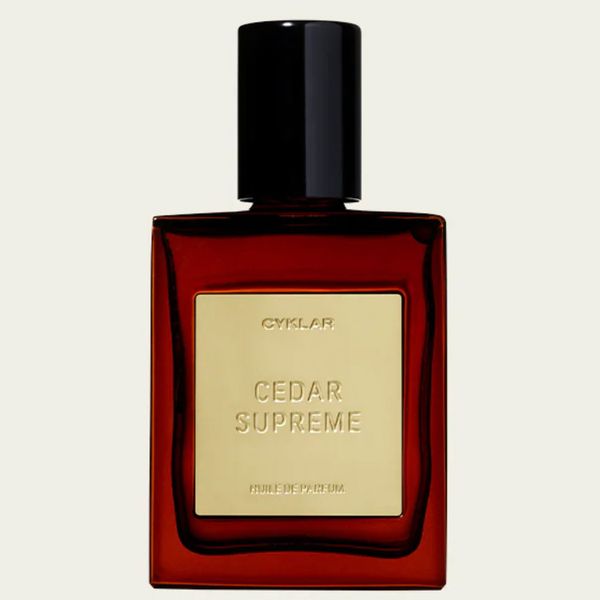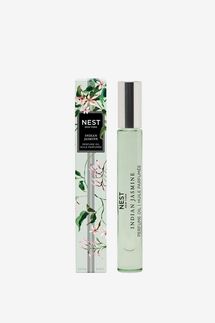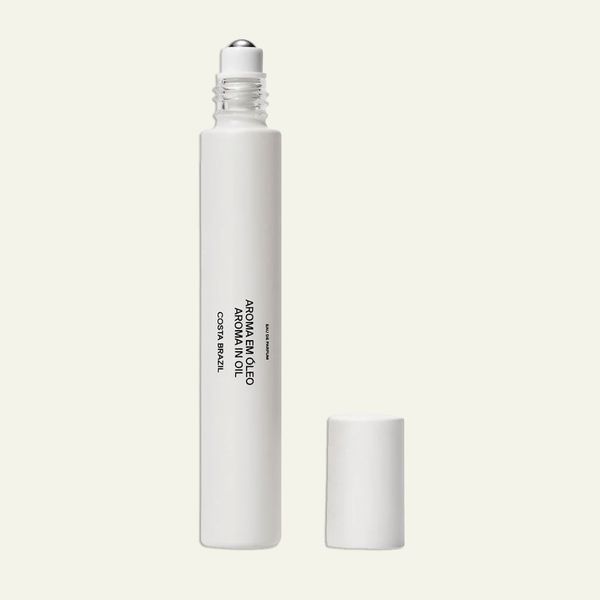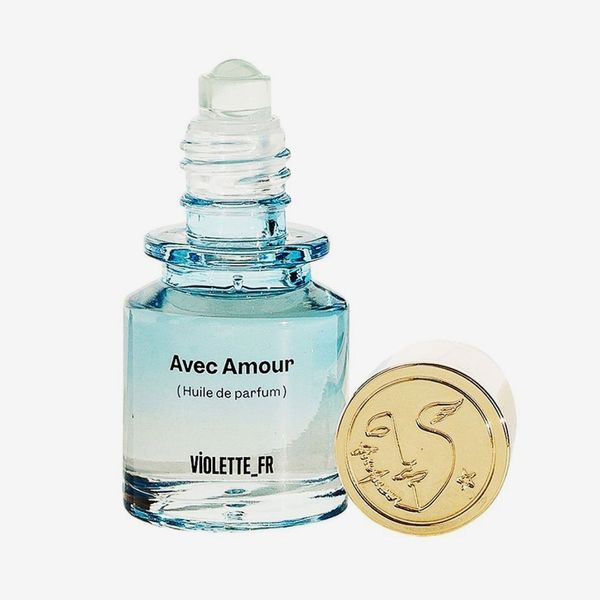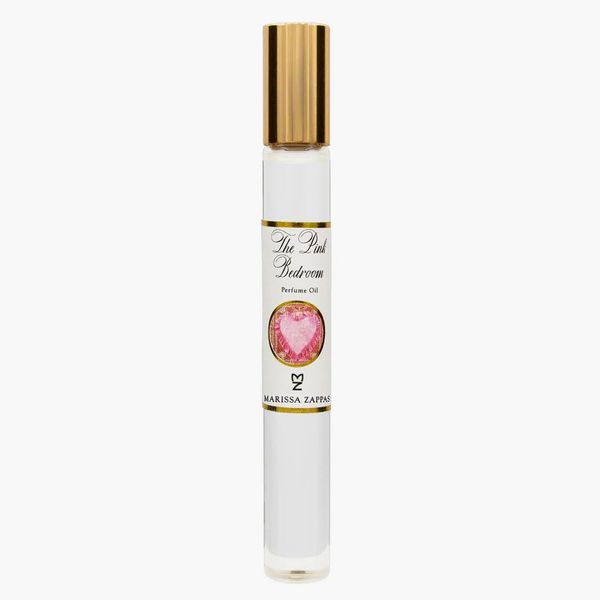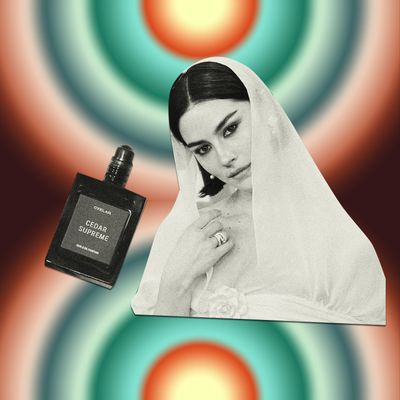
What’s with all the new perfume oils?
Dear Beauty Editor,
I’ve noticed more perfumes are available as oils. Are they better than sprays? I’ve heard that oils are the highest-quality, longest-lasting types of perfume. What do you think?
xx
Emily
Oil is arguably the oldest format of fragrance there is. And you’re right: The modern versions — applied with droppers or rollerballs and sold at places like Sephora — are definitely having a moment. If you paid close attention to the Grammys earlier this month, you may have noticed singer Gracie Abrams dab her wrists with an oil midway through the show. (It was the $24 Cedar Supreme Perfume Oil from Cyklar, a brand founded by Claudia Sulewski.) Popular brands like Byredo, Dior, Phlur, and Nest New York now sell oil versions of their scents. “In this heightened time of surrealness, part of the appeal of oils is that they reconnect us with our bodies — they’re more sensual to apply and they’re more tactile,” says perfumer Marissa Zappas, whose Pink Bedroom Oil has a bit of a cult following with fragrance collectors.
Another reason people are drawn to oils right now could be their perceived value. “There’s this idea that an oil will stay with you longer than a traditional alcohol-based spray,” says fragrance writer April Long, author of The Pomander newsletter. (An added bonus: If your perfume does wear off, “it’s far less obnoxious to roll a little oil onto your wrist than it is to spritz something in public,” she says.)
But even though many people believe oils are always longer-lasting than the more familiar spray formats, like eaux de toilette and eaux de parfum, that’s not always the case. Hyped-up marketing could be to blame, but the confusion also has to do with the vocabulary we use to talk about fragrance. Read on for more info that will help you find a scent that lasts.
What is a perfume oil?
Depends on how the term is used. When a perfumer creates a new fragrance, they blend dozens of synthetic and naturally derived chemicals and compounds. That new fragrance, in its most potent form, is called a perfume concentrate or (confusingly, I think) perfume oil. It is not an essential oil. And it is not the same as the marketing term “perfume oil” that you’ve probably seen on the label of some rollerball-style fragrances. (Told you it was confusing.) In fact, you would not want to wear a pure perfume concentrate/oil. Many of the ingredients in the blends are skin irritants in high concentrations, and some are so intensely aromatic that they’re off-putting. But the perfumer transforms the perfume concentrate/oil into something more wearable by diluting it, typically in alcohol. Dilution doesn’t just make the finished product safer for your skin; it’s also an important step in the art of perfumery. The amount of concentrate/oil in the final perfume, the ingredients used to dilute it, and the length of time the final mixture is aged all affect the way the finished perfume smells and how long it lasts on the skin.
What is the most concentrated form of perfume you can buy?
In the United States, there are no laws regulating the labeling of perfume-concentration levels, but there are guidelines that many manufacturers and classically trained perfumers use. For example, a body mist or eau fraiche typically contains less than 5 percent perfume concentrate/oil. Eau de toilette contains 5 to 15 percent; eau de parfum contains 15 to 20 percent; and parfum or extrait contains up to 40 percent. There are also attars. These traditional fragrances are made by soaking flowers or natural ingredients in lightly fragranced base oils such as jojoba or sandalwood oil. They’re not cut with any alcohol. Attars are more widely available in India, Africa, and the Middle East, and, technically speaking, they are the most concentrated form of perfume you can buy. But if an attar were made with a few rose or jasmine petals in, say, a gallon of jojoba oil, it wouldn’t smell that potent and it probably wouldn’t last that long on skin. And many of the attar-like oils sold in the U.S. at markets and natural stores aren’t made in the traditional manner, so it’s hard to determine how concentrated they are.
How potent are the new perfume oils and how long do they last?
You’ll notice I didn’t include “perfume oils” in the breakdown above. That’s because the modern rollerball-style iterations are a relatively new concept. These perfume oils, sometimes labeled huile parfumée, are made by blending a perfume concentrate/oil into unscented base oils or oil-like mixtures. “The concentration level depends on the brand,” says Zappas. “All of the oils I make are 20 percent, which is a higher concentration than my sprays.” But most brands that sell perfume oils do not advertise the level of perfume concentrate/oil in their products. And I’ve seen some claim that their oils are “pure fragrance,” yet their ingredients lists include unscented base oils like jojoba or things like isopropyl myristate, an odorless oil-like emollient that can be used as a perfume base.
So, which perfumes last the longest?
You would think the higher the concentration of perfume oil in a product, the longer it would last (e.g., an eau de parfum will always last longer than an eau de toilette). But in modern perfumery, that’s not always the case. There are so many other factors that affect how long a perfume lasts, including the quality of the raw materials, the fixatives it’s blended with, even your individual body chemistry. For example, “the more moisture or oil there is in your skin, the longer your perfume will last,” says Zappas. The type of fragrance matters too: Woodsy, resinous notes like oud or patchouli tend to last longer than citrusy or fresh-floral notes like lemon verbena or freesia.
Perfume oils have a reputation for being long-lasting because they often feature perfume notes that are long-lasting, like “heavier smells such as woods, musks, and animalic florals like jasmine,” says Zappas. But as the concept of what a perfume oil is broadens, that’s not always going to be true. So when it comes to finding a long-lasting scent, “I hate to say it, but you just have to try to see what works for you,” says Long.
Perfume oils that last
Send your questions to [email protected]. (By emailing, you agree to the terms here.)



